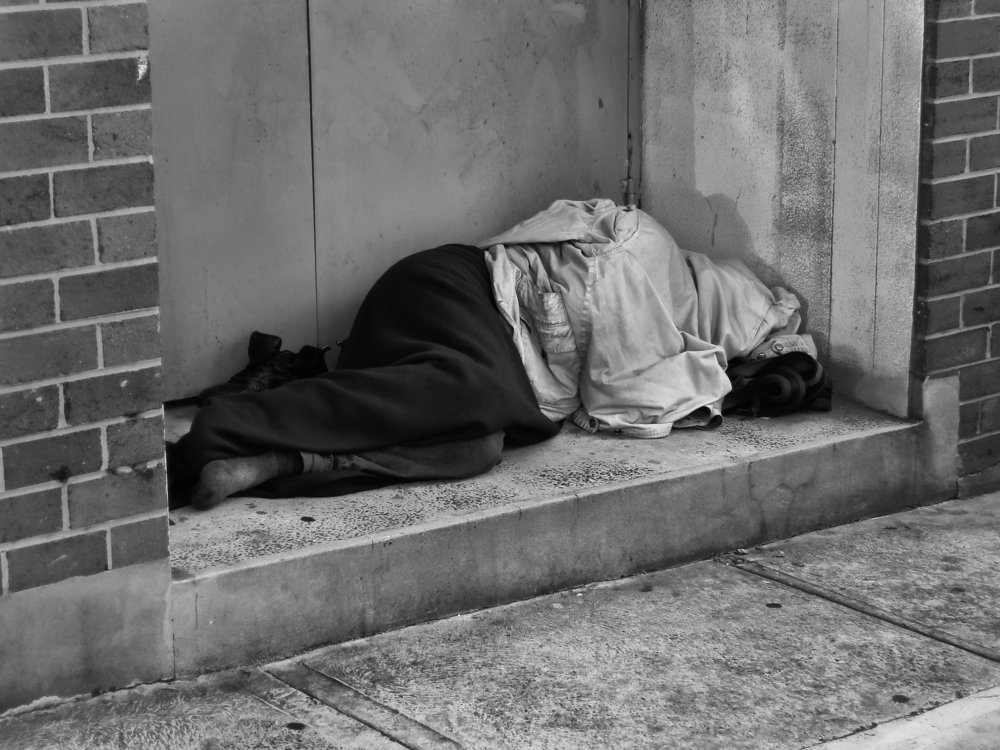Petty Trump Tweets but not the Housing Crisis? Scant Media Coverage of Homelessness
- Wednesday, 08 February 2017 08:19
- Last Updated: Wednesday, 08 February 2017 08:21
- Published: Wednesday, 08 February 2017 08:19
- Carly Glickenhaus
- Hits: 5156
 This essay was submitted to Scarsdale10583 by Carly Glickenhaus, who is a SHS grade and freshman at Georgetown University.
This essay was submitted to Scarsdale10583 by Carly Glickenhaus, who is a SHS grade and freshman at Georgetown University.
Over a steaming cup of hot chocolate on Park Avenue, the homeless men and I debate whether the New York Mets stand a chance this season. Spending hours on the cold streets of New York on Saturday nights talking to the homeless while handing out food and clothes, I noticed we felt a common connection as members of the same city and life. In a world where misunderstanding of differences incites political conflict, there is hope for progress. Equality. Change. However, how can we make a change if we do not know it needs to be made? As a result of disproportionate news coverage, there is not enough public awareness surrounding homelessness, leaving rightful members of society ignored, voiceless, and silent.
On a single night in January 2016, 544,084 people experienced homelessness in the United States. To give visual context of this statistic, 500,000 people were drawn to Washington for the Women's March this January. The aerial views streaming on the news showed downtown Washington inundated by bodies. If every homeless American were to stand next to each other, they would fill the heart of the nation's capital.
The media's pervasive access to every American home and mind grants the press the power and duty to shape public opinion and direct the public attention to homelessness. By inadequately portraying homelessness, the media may be playing an active role in perpetuating a glaring social injustice. The frequency of articles and the minutes of airtime designated to the housing crisis influences how ordinary voters and our elected leaders think about the problem. Democracy depends on the availability of diverse, factual information to ensure voters can make educated decisions.
During this election season, we closely reexamined the way the government upholds our individual rights to property and privacy, women's rights to bodily integrity, and religious rights to free self-expression. The media focuses on singular identity groups like women, the LGBTQ community, Muslims, Blacks, but we give sparse attention to a population that encompasses all of these identity groups. 500,000 flocked to the White House to demonstrate their support for equal human rights on the basis of gender, but a justice issue of equal gravity does not receive the same attention from the public. The homeless are denied rights to property, rights to bodily integrity, and rights to self-expression every night as they sleep on concrete, meekly shielded by sheets of cardboard and coldly ignored by even the kindest passerby. The nation as a whole has a responsibility to change the way the public thinks about homelessness because if we cannot solve the cultural crisis at our doorsteps, we do not have standing to fight for democracy and human rights abroad.
If social justice bills are to earn a vote in Congress, homelessness must find a spot in the national consciousness along with gun control, immigration, and abortion, which the media loves to talk about. Increased media coverage is needed to influence government decisions to allocate resources and funding to address the chronic homelessness, veteran homelessness, and unmet need for emergency food assistance. When the press chooses to cover stories about Trump's juvenile games, our treasured agents of democracy misrepresent the issues that plague our nation.
My plea to you, the public, is to do the job the press is failing. On Facebook, stop sharing links to Trump's latest petty tweet. Before we can move forward in our politically polarized culture, we need to carefully choose our conversations. Let's use Facebook, Instagram, and Twitter as forums to return to core democratic values so we can move forward. Share articles about housing and social justice issues. Share "Humans of New York" photos until the muffled voices become shouts to Congress. Today, the press is becoming a platform for the mud-slinging of political parties, but if we can calm our insatiable thirst for controversy, then perhaps we can direct the national attention to the issues that will be victories for any party, for the American image, and for humanity.
Carly Glickenhaus, SHS '16, is a freshman Biology major and Division I Varsity Lightweight Rower at Georgetown University. She is a member of the Tour Guide Society and serves as Marketing Director for Homeless Outreach in Georgetown's Center for Social Justice. She wrote this opinion piece for her Writing and Culture seminar at Georgetown.






